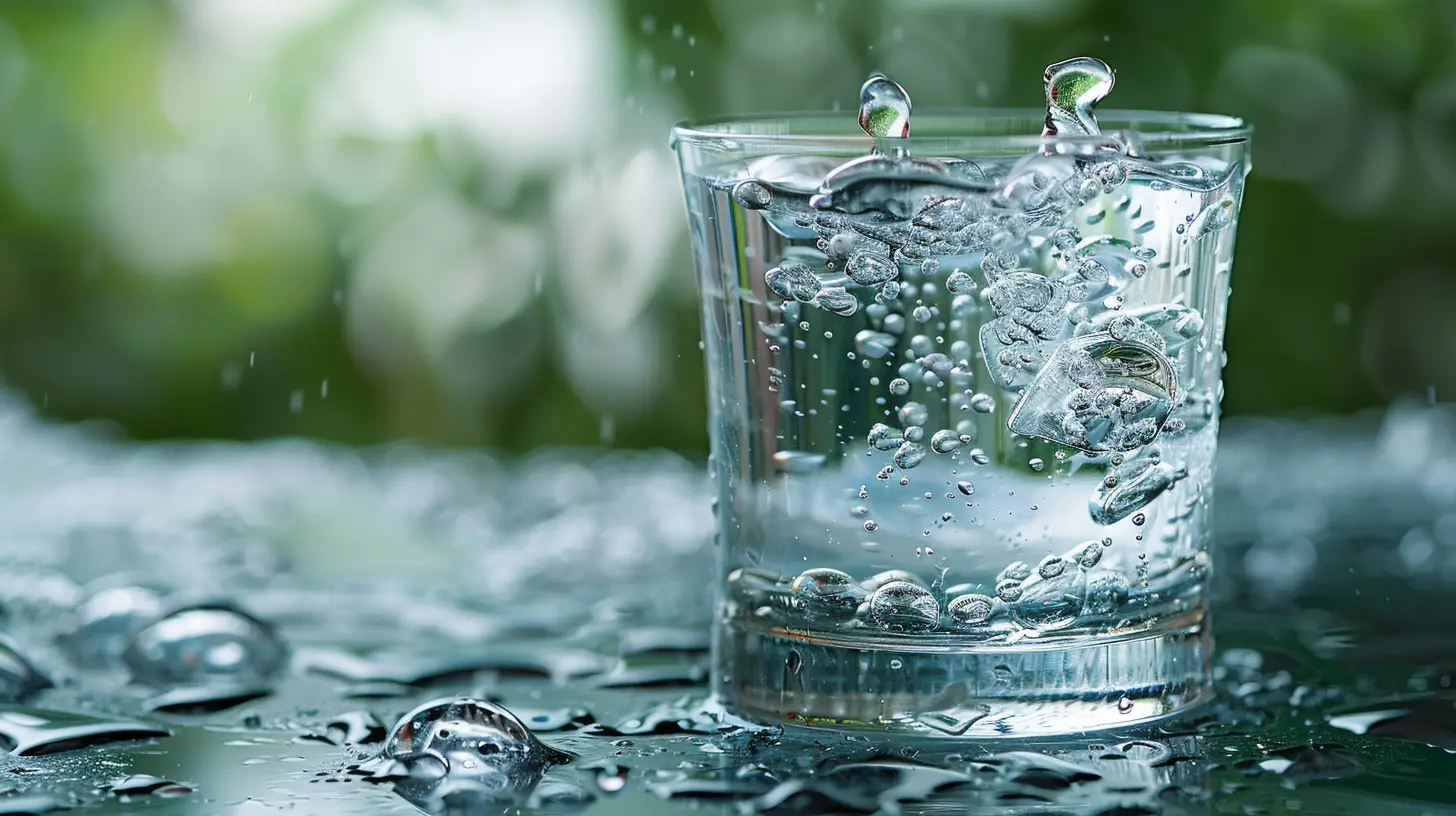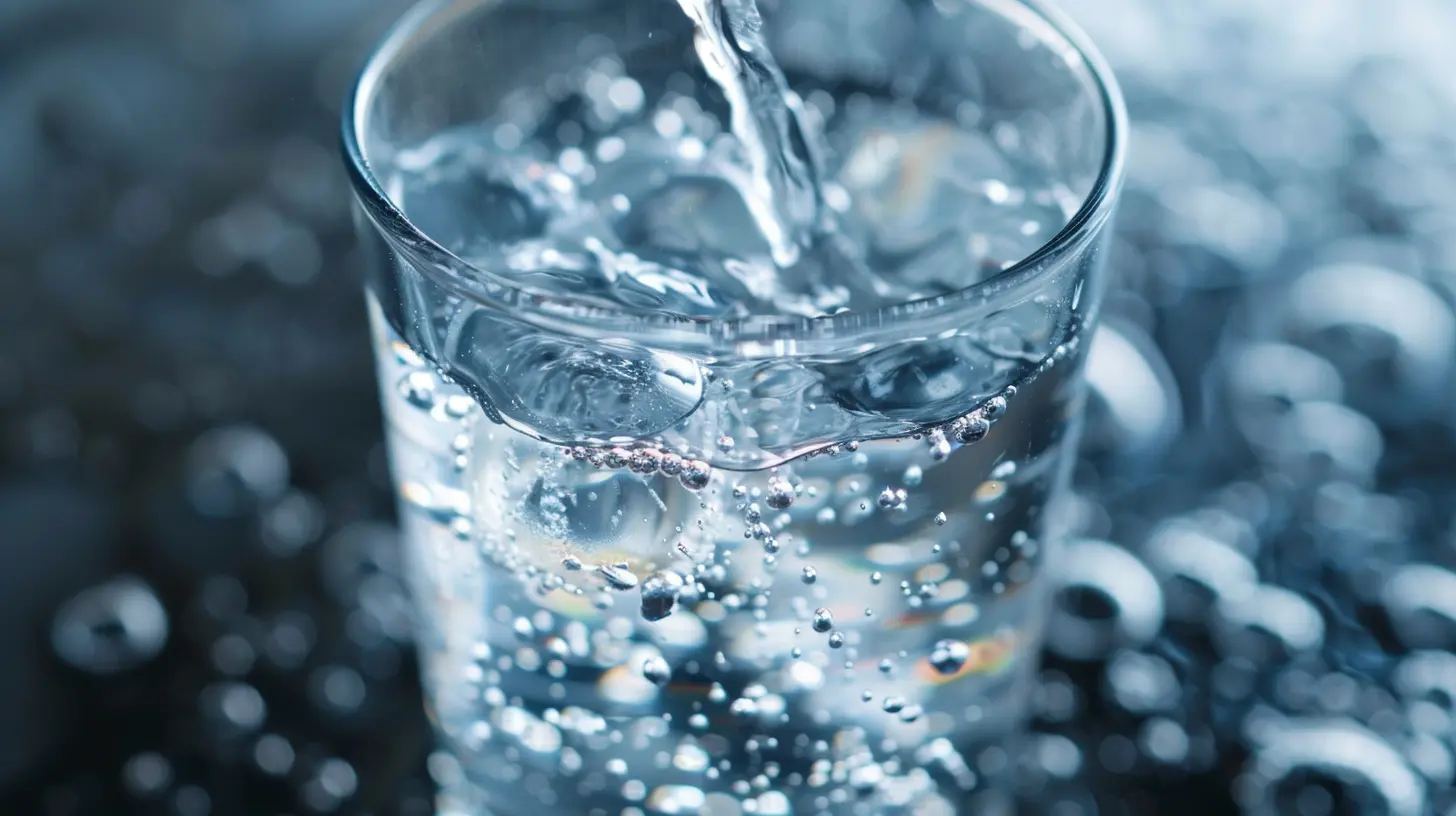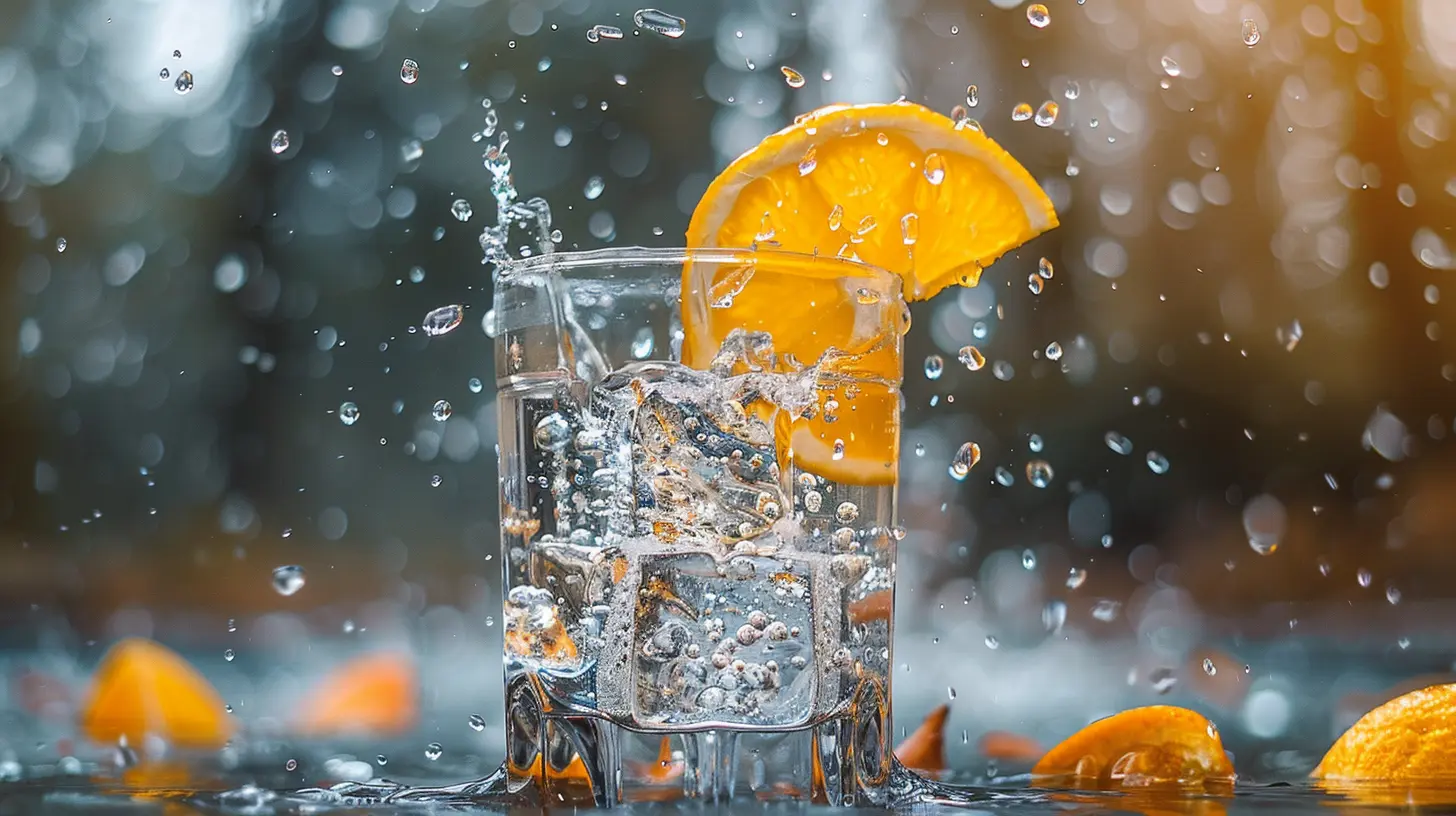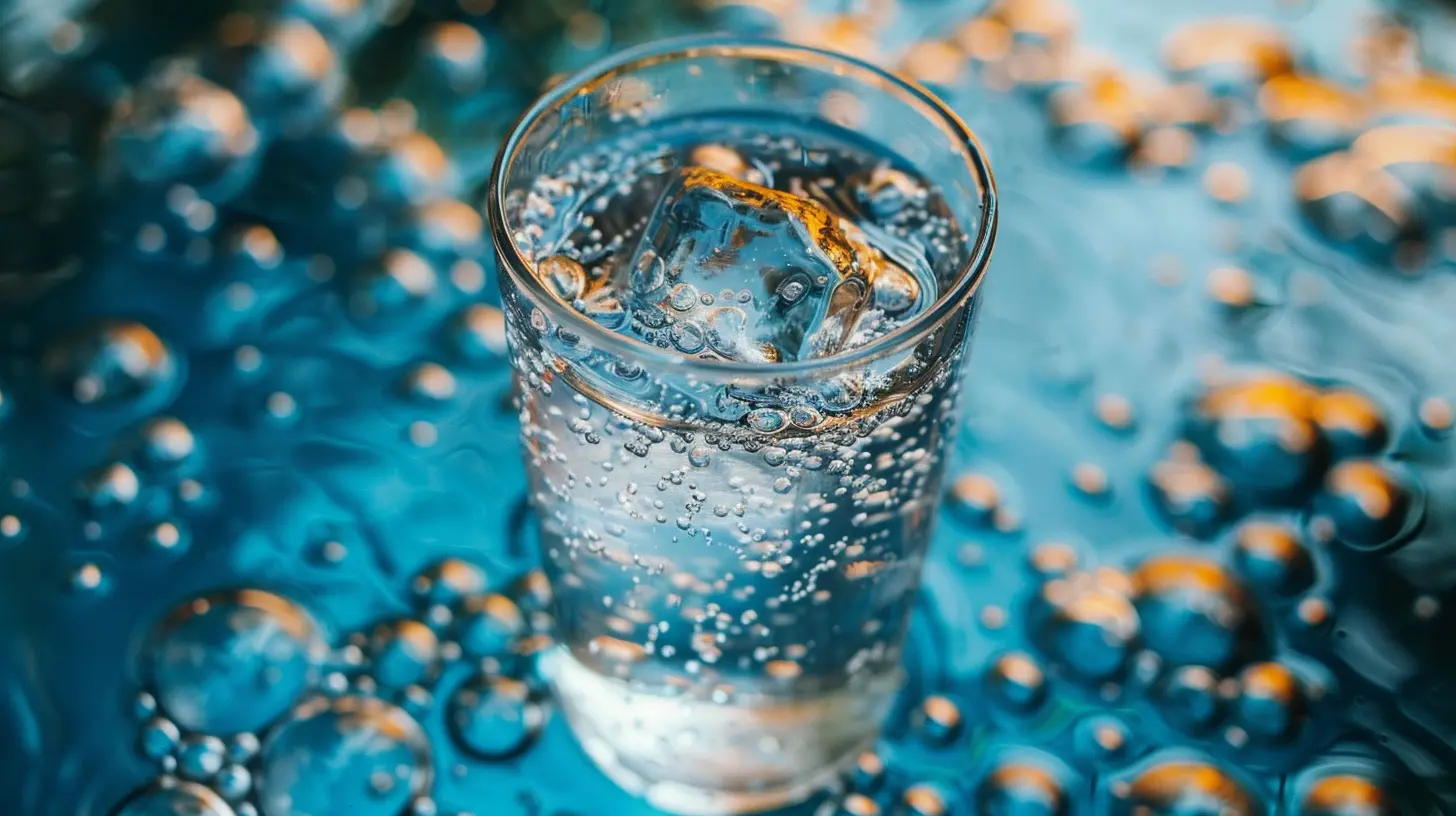Supporting Your Postpartum Recovery Through Hydration
6 November 2025
So, you've just had a baby—congrats, mama! Whether you're still snuggling that newborn or juggling your third diaper change before noon, it goes without saying that those early postpartum days can be downright exhausting. Between sleep deprivation, emotional ups and downs, physical healing, and a tiny human depending on you 24/7, it’s easy to put your own needs on the back burner. But here's one thing that absolutely shouldn't be ignored: staying hydrated.
Yep, water. Plain and simple—but oh-so-powerful. You may not think much of it, but keeping your body well-hydrated is one of the easiest (and most overlooked) ways to support your postpartum recovery. Let’s talk about why hydration matters so much during this stage and how to make it a part of your daily mama routine.
Why Hydration is a Postpartum Game-Changer
Think of your body like a house that just went through a major renovation (hello, childbirth). Everything is out of place, a little messy, and in desperate need of repair. Hydration is that friendly neighborhood contractor that comes in with the tools, materials, and energy to help rebuild and restore.1. Helps Your Body Heal Faster
Your body just did something nothing short of miraculous. Giving birth—whether vaginally or via C-section—is trauma on the body. Hydration supports tissue repair, replenishes fluids lost during labor, and aids in getting your organs and muscles back in shape. Think of water as the internal cleanup crew flushing out toxins, reducing inflammation, and keeping everything moving smoothly.2. Keeps Your Energy Up
Feeling like you could fall asleep standing up? While sleep deprivation is a huge culprit, dehydration can actually make fatigue worse. Your body uses fluids to keep blood circulating, regulate temperature, and transport nutrients. When you’re running on low fluids, everything slows down—including your energy levels. Before you reach for another cup of coffee, try a tall glass of water.3. Promotes Healthy Breastfeeding
If you’re breastfeeding, your body demands even more water than usual. Breast milk is about 90% water, and your baby’s feeding sessions—especially in those early cluster-feeding days—can leave you parched. Staying hydrated not only helps maintain your milk supply but also keeps you feeling alert and balanced. A dehydrated mama may notice a drop in milk production, headaches, and sluggishness. No, thanks!4. Regulates Digestion and Prevents Constipation
Let’s talk about poop. Yep, we’re going there—because postpartum constipation is real. Whether it’s from hormonal shifts, iron supplements, or fear of “the first poop” after delivery, many new moms struggle with digestion. Water softens stools and helps things pass more smoothly. Pair it with fiber-rich foods, and you’ll be back on track in no time.5. Supports Mental and Emotional Balance
Postpartum life isn’t just a physical rollercoaster—it’s an emotional one, too. Staying hydrated can help improve mood regulation, reduce brain fog, and keep your mind sharp. While hydration alone won’t cure postpartum depression or anxiety, it's a small, powerful way to nurture your mental health. Your brain needs water just as much as your muscles do.
How Much Water Do You Actually Need?
You’ve probably heard the old "8 glasses a day" rule, but here's the truth—there’s no one-size-fits-all answer. In postpartum, especially if you're breastfeeding, your water needs go way up. On average, most new moms should aim for:- Around 12–16 cups (3–4 liters) per day, depending on their body size, activity level, and whether they're nursing.
- If you're breastfeeding, tack on an extra glass of water for every feeding session.
The takeaway? Drink often, and don’t wait until you’re thirsty. By the time thirst kicks in, your body’s already playing catch-up.
Signs You Might Be Dehydrated (And Not Know It)
Let’s face it, you're busy. With so much going on, it’s easy to overlook the signals your body’s sending. Here are some subtle (and not-so-subtle) signs of dehydration to keep an eye on:- Dry mouth or cracked lips
- Headaches or light-headedness
- Low energy or fatigue
- Dark yellow urine or infrequent urination
- Constipation or bloating
- Irritability or mood swings
Sound familiar? Don’t beat yourself up. Just start sipping—your body will thank you.
Easy Ways to Stay Hydrated as a Busy Mama
We get it—you're not lounging around with a hydro flask glued to your hand. Staying hydrated actually takes a little planning when you’re navigating postpartum chaos. Here are some easy, mom-friendly tips to make sure you’re sipping throughout the day:1. Keep Water Within Arm’s Reach
Seriously, stash water bottles everywhere—next to your bed, the nursing station, the diaper changing table, and even in the bathroom. Let’s make water the new pacifier.2. Flavor It Up
Not a fan of plain water? Add a splash of flavor with lemon, cucumber, mint, or berries. Infused water feels fancy and tastes like a treat.3. Try Coconut Water or Herbal Teas
Low-sugar coconut water is a hydration hero packed with electrolytes. Herbal teas (like red raspberry leaf or chamomile) are also great for hydration and calming the nervous system.4. Set a Timer or Use a Water Tracking App
Technology to the rescue! Use a hydration app or set reminders on your phone to drink water every hour. It’s like having your own hydration accountability buddy.5. Hydrating Foods Count Too
Soups, smoothies, fruits (like watermelon, oranges, and strawberries), and even veggies (like cucumbers and zucchini) all contribute to your daily fluid intake. Win-win.What About Electrolytes?
You’ve heard about them in sports drinks, but do you really need electrolytes postpartum? The answer: maybe.If you’re sweating a lot (goodbye, postpartum night sweats), breastfeeding frequently, or feeling extra depleted, a gentle electrolyte drink can help replenish minerals like sodium, potassium, and magnesium. Just steer clear of sugary options. Look for clean electrolyte powders or opt for natural sources like coconut water or even a pinch of sea salt in your lemon water.
The Role of Hydration in Hormonal Balance
Postpartum hormones are doing backflips, and dehydration can throw them even further off course. Your body relies on fluids to produce, regulate, and eliminate hormones efficiently. When you’re dehydrated, your body may struggle to bounce back to its pre-pregnancy equilibrium.Hydration also supports your adrenal glands, which are responsible for stress hormones like cortisol. Letting these adrenals rest and recover (aka not overworking them due to dehydration) helps minimize anxiety and emotional crashes.
Breastfeeding Hydration Myths (Busted!)
Let’s clear up some confusion around water and milk supply:- Myth: You have to chug gallons of water to make enough milk.
Truth: While dehydration can impact supply, overhydration doesn’t necessarily mean more milk. Drink to thirst and pay attention to your body’s cues.
- Myth: Clear pee = optimal hydration = excellent milk supply.
Truth: Clear urine is only one factor. Focus on energy levels, milk output, and baby’s cues too.
- Myth: Sports drinks are the best way to hydrate when nursing.
Truth: They can help, but many contain sugar and additives. Water and natural sources work just as well, if not better.
Hydration Hacks for Night Feeds
We all know nighttime feeds can feel like a scene from a zombie movie. Here's how to sneak hydration into those 2 AM cuddle sessions:- Keep a reusable straw bottle by your bed. It’s spill-proof and easy to sip one-handed.
- Pre-fill a few bottles before bed—less fumbling during the night.
- Add a splash of juice or herbal tea if plain water feels boring during the wee hours.
Pro tip: hydrating at night can help reduce those annoying postpartum headaches that arrive before the sun does.
Rehydrating After a C-Section
Had a C-section? Your body’s in a different stage of recovery, but hydration is still key. After surgery, your digestive system moves slower and your body’s working hard to heal the incision site. Water helps prevent post-op complications like bloating, constipation, UTIs, and sluggishness.Plus, anesthesia and medications can dry you out. Keep fluids flowing to detox your system and support your immune response.
When to Call the Doctor
While mild dehydration is easy to fix, sometimes it can signal something more serious. See your doctor if you experience:- Dizziness or confusion
- Rapid heartbeat
- Fever with dry mouth or no urination
- Inability to keep fluids down
- Sudden drop in milk supply
Always trust your mama instinct. If something feels off, it probably is.
Real Talk: You Deserve to Feel Good
Let’s wrap this up with a dose of honesty: You’re doing a whole lot right now. You might not always feel in control, but staying hydrated is one small—but mighty—thing you can do for yourself every single day.You don’t need to be perfect. Just be kind to your body. Give it the fluids it needs to bounce back, support your baby, and keep you feeling like, well...you.
So drink up, mama. You’ve got this.
all images in this post were generated using AI tools
Category:
Postpartum RecoveryAuthor:

Tara Henson
Discussion
rate this article
1 comments
Zanthe McMeekin
Hydration is crucial for postpartum recovery. Drinking enough water aids in healing, boosts energy, and improves mood. Consider incorporating hydrating foods like fruits and vegetables into your diet. Prioritize self-care and keep a water bottle nearby to make hydration a habit during this transformative period.
November 11, 2025 at 5:57 AM

Tara Henson
Thank you for highlighting the importance of hydration during postpartum recovery! Staying hydrated truly supports healing and boosts overall well-being. Incorporating hydrating foods and making water accessible are excellent tips for new parents.


